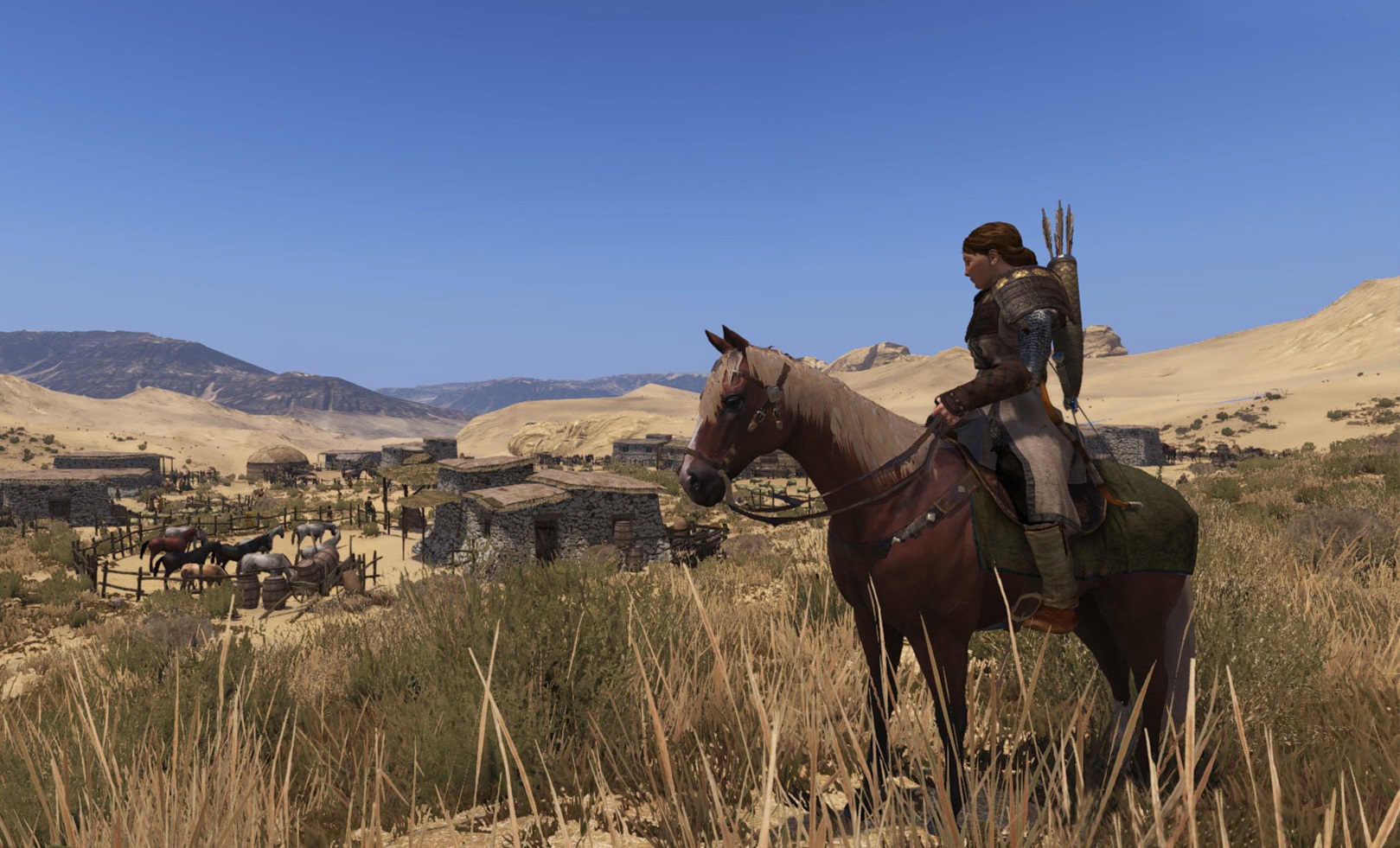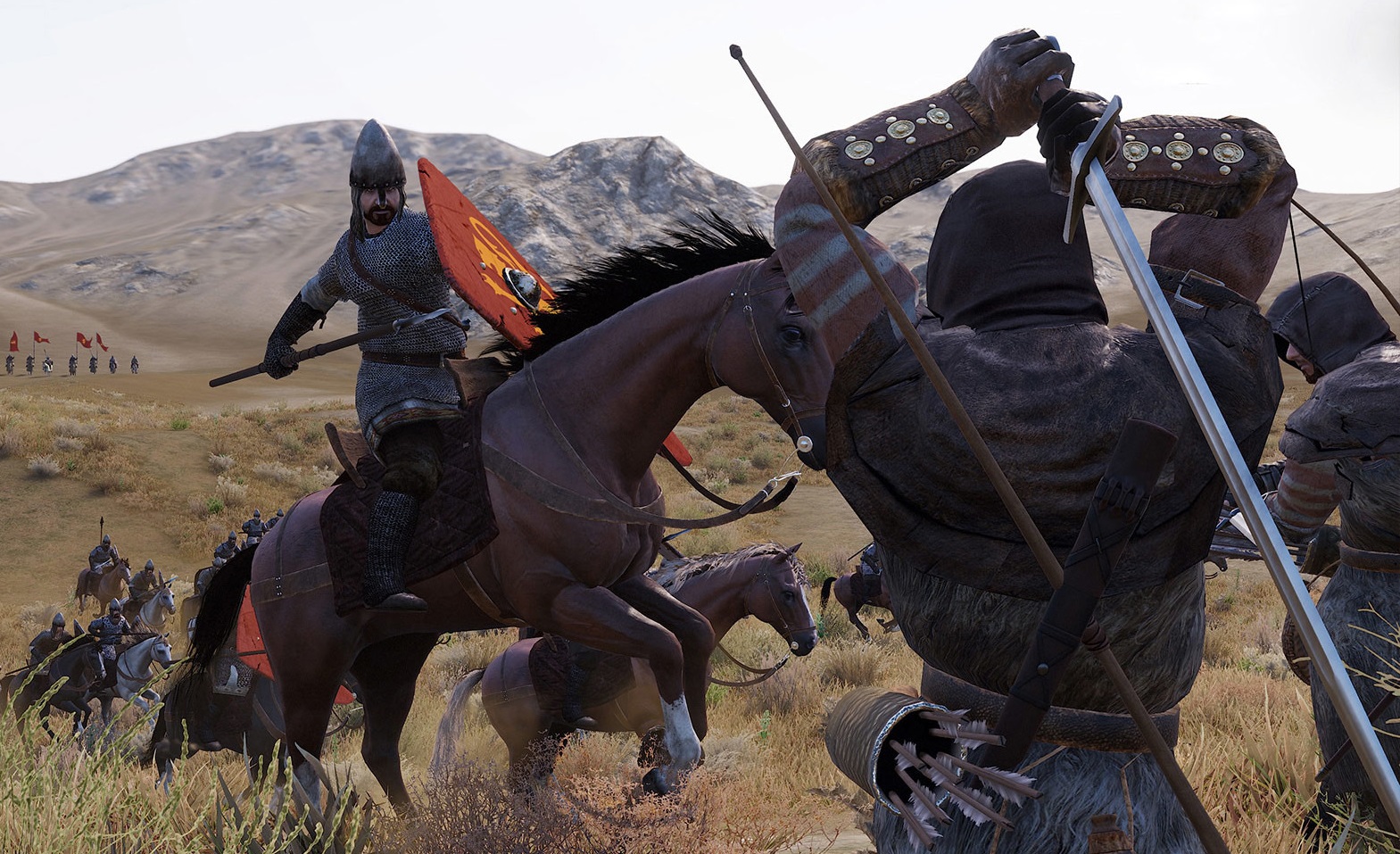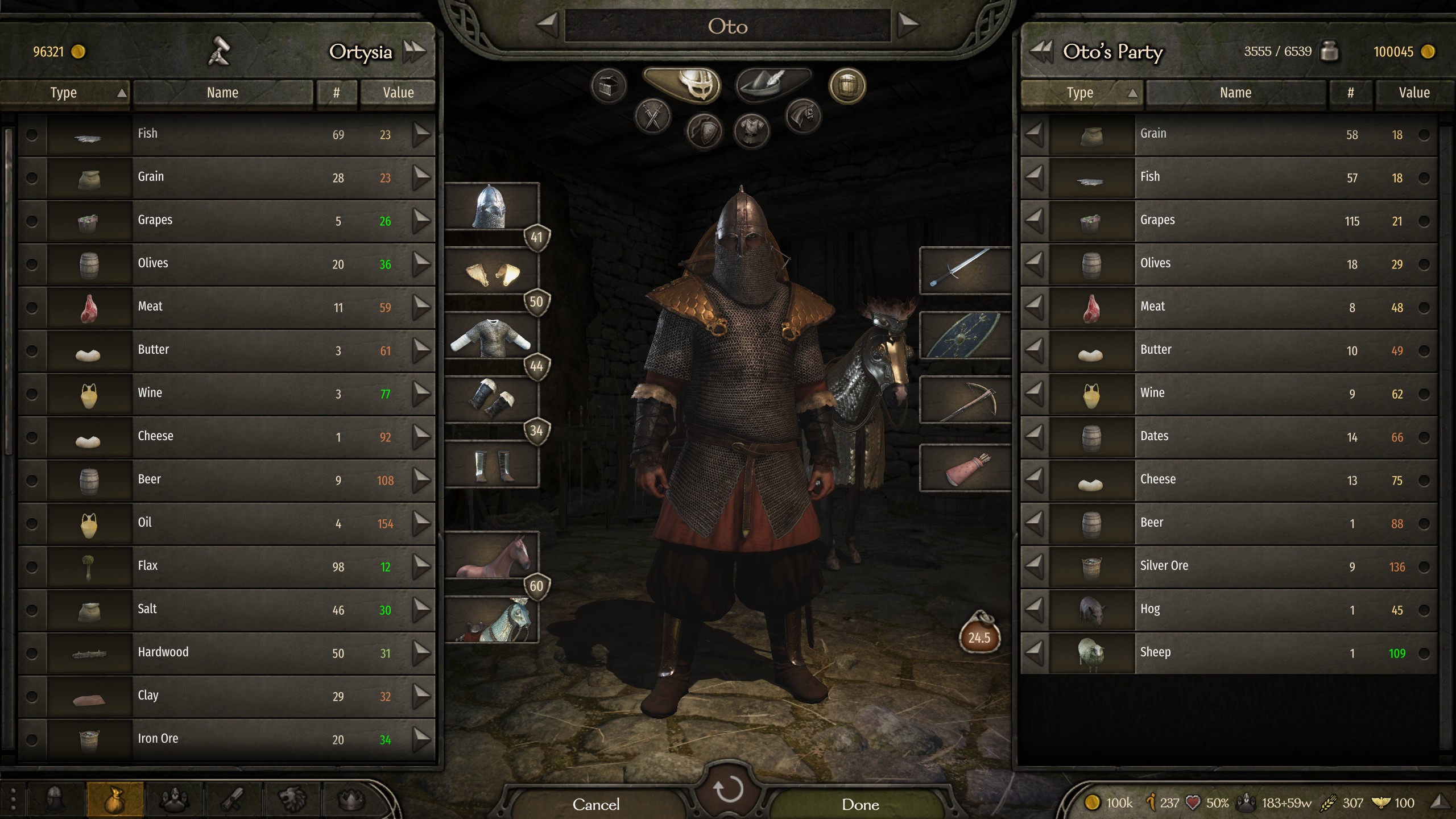How to run a caravan and trade in Bannerlord
Here's another way to make money in Mount and Blade 2, as long as your stock doesn't get pilfered.

Wondering how to start a caravan in Mount and Blade 2: Bannerlord? While by no means necessary to success, trade is a great way to make seed money to start your own kingdom or network of profitable workshops. Establishing a network of caravans is one means of doing this, but it's not a risk-free enterprise.
If you're ready to lay your money on the line, this guide will take you through the basics of caravan escorts, trading for profit, what to trade, and how to start your own caravans. Just remember I'm not responsible for any of your precious goods getting pinched by bandit chancers.
How to start Bannerlord caravans
To start your own NPC caravan, do the following:
- Find a free NPC companion and 15000 denars of seed money.
- Find a town as your caravan base, preferable one you own.
- In your chosen town, mouse over the important people in the top-right and choose a merchant.
- Tell them “I want to start a caravan in this town.”
- Pay your money and pick a capable trader as your caravan’s leader.
Companions with the epithets Spicevendor, Swift, and Bitterdraught are the best companions to lead a caravan, because they have the trade skill. Use the in-game Encyclopedia (N) to search for wanderers with those tags to recruit. The most important skill for a caravan leader is Trade, followed by Steward, Tactics, and Scout. Trade will see them make more money from transactions, Steward gives caravans more guards. Tactics will make their caravan more likely to win battles you’re not there for. Scout will let them see other parties to run from early enough to escape.
When recruiting for a caravan leader, prioritize those skills in that order. It’s okay to have NPCs without these skills run caravans, but be aware they’ll generally bring in 80-120 Denars a day. They may have occasional spikes as high as 1000, but they'll definitely lose you money some days, too.
How to follow a Bannerlord caravan
Some settlement quests ask you to escort a caravan across the map. Once you’ve accepted the quest, go outside the settlement and let time pass until the caravan appears—it usually won’t take more than 15 seconds of waiting. Once the caravan has appeared, click near it as it moves to follow it. You can’t simply click on the caravan: that'll stop the caravan and start a chat with its leader.
If the caravan is attacked, you need to enter the battle to protect it. Caravan follow quests can last upwards of a week or two, so be sure you’ve got wages for your troops and a stock of food. As you follow the caravan, visit the cities on its route to buy cheap trade goods for your ongoing journey, if need be.
Keep up to date with the most important stories and the best deals, as picked by the PC Gamer team.
How trade works in Bannerlord

Bannerlord cheats: Get rich and dominate battles
Bannerlord companions: How to recruit the best
Bannerlord tips: Our full beginner's guide
Bannerlord difficulty: Which to choose
Bannerlord mods: The best player-made additions
Bannerlord marriage: How to start a family
Bannerlord combat: Battle and 1v1 tips
Bannerlord money: Get rich quick
Bannerlord factions: Which should you choose?
Bannerlord workshop: Make easy money
Making money trading is simple economics: Buy low and sell high. Of course, figuring out what to buy, where to buy it, and where to sell is harder. To make money fast, focus on gathering trade information, rumors, and buying cheap. When you mouse over a trade good in a trade screen it'll have a price colored beige, green, or red. Here's what each color means:
- Beige: Closer to the average, or base, price
- Red: Higher price
- Green: Lower price
Note: This information is more accurate and more clearly signposted as your character’s trade skill improves. You can also see your collected trade rumors by highlighting a good, on a per-product basis. When you’re looking at a shop’s inventory you can mouse over it for either buy, or sell, information based on where you’ve been. Shops also have limited gold to buy goods, which you can check in the top left corner.
Trade rumors, trade penalties, and how to increase the trade skill
Trade rumors are the information about the recent cost and selling price of goods in place you've visited. You can get them from going to the market in a town and checking the trade goods prices. You can get further rumors—often for far away places you’ve never been—by asking people in villages, town streets, or caravans on the world map for “news of the markets.”
Trade skill increases when you sell goods you bought for a profit. The more profit you make, the more experience you gain towards Trade. Higher Trade skill decreases your trade penalty. The most powerful effects of the Trade skill, however, come from the perks.
Perks in the Trade skill tree buff your monetary income in various ways, but can also benefit non-trade-focused players. The first tier of trade perks are useful because they highlight a profit or loss on the trade screen based on what you paid for the goods. The ability to trade ownership of settlements is particularly powerful, letting you buy new land from other lords.
And trade penalty is, the difference between what you sell a good for in a town and its going rate in that same town. It’s the difference between what the merchants in that town would sell something for—even if they don’t have any—and the price they offer you for it. Effects that decrease trade penalty, like trade skill, therefore increase the price of everything in the game.

What to buy and sell in Mount and Blade 2
First, be skeptical of trade guides that tell you exactly what to buy and where, to make a profit. Most won't take into account that each town’s workshops are unique in each playthrough, so prices can vary wildly on specific goods from game to game. Villages, however, are always the same: You can safely trust them to have good regional prices on exactly what they produce, and to craft the same things every game. The universal principle to make money is buy green and sell red.
That said, here are some general tips:
- Some items are only produced in specific parts of the map. There's no salt production in the northwest. The north, far east, and southern desert have few olives and no grapes. Dates come exclusively from the south. Cotton is only grown in the northeast. Furs are generally worth more the further south you go.
- Staples like grain are produced everywhere, but large cities never have enough. Keep track of which towns have high prosperity levels: They’ll pay a boatload for basic foodstuffs like grain and fish.
- Nobody ever seems to have enough beer. Always buy cheap beer, wine, or oil. They're rations for your troops and can sell for 200-300% its base value.
- Mouse over the hammer at the top of a town’s shop to see what its villages produce and the kinds of workshops it has.
- Villages have fixed prices on their product, so stop at them as you go in case you get a great deal.
- Sumpter Horses, Camels, and Mules can slow down your party, but add a lot to your carrying capacity. Proper horses add to your total inventory space and speed up the party.
Jon Bolding is a games writer and critic with an extensive background in strategy games. When he's not on his PC, he can be found playing every tabletop game under the sun.

